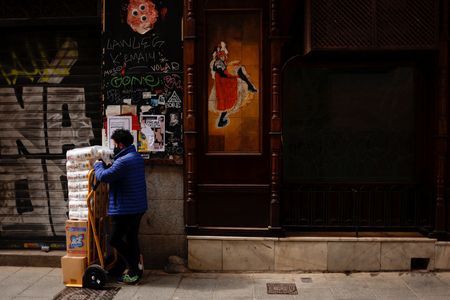 1
1 1
1

MADRID (Reuters) – The Bank of Spain told lenders on Thursday to adequately monitor credit risks of some of their customers most exposed to the economic impact from Russia’s invasion of Ukraine and urged banks not to release provisions given the current uncertainty.
“In view of the new shock, we will have to closely monitor the effects of the crisis on institutions and their borrowers,” Bank of Spain Governor Pablo Hernandez de Cos said in the presentation of the central bank’s supervisory report.
He said lenders needed to maintain a high degree of prudence, with “appropriate and early recognition of the associated risks, in order to preserve confidence in the sector and to facilitate the continued flow of credit to the economy”.
On Tuesday, the central bank lowered its economic growth forecasts for 2022 and 2023.
Deputy Governor Margarita Delgado warned in the report that “it is important that lenders…do not release provisions until uncertainties dissipate.”
Spanish banks such as Santander and Sabadell have recently started to release provisions, mainly in the United States and Britain.
Although Spanish lenders have little exposure to Russian credit, estimated at just above 700 million euros ($770 million) by the central bank, they fear an indirect impact of high energy prices on some of their customers.
Analysts have also warned that the conflict could delay interest rate hikes in the long run, and Delgado said it was “difficult to establish clear scenarios for the evolution of interest rates”.
She saw a more limited scope for further domestic mergers but growing chances of cross-border deals in Europe. The number of significant lenders in Spain has dropped to 10 from 55 before the 2008 financial crisis.
Despite a significant rise in property prices in 2021, De Cos did not see any evidence of a “clear overheating in the Spanish real estate sector”, but said the bank would closely monitor its performance. Spain’s property price index rose 6.4% in the fourth quarter, the biggest increase since early 2019.
(Reporting by Jesús Aguado; Additional reporting by Emma Pinedo; Editing by Andrei Khalip)